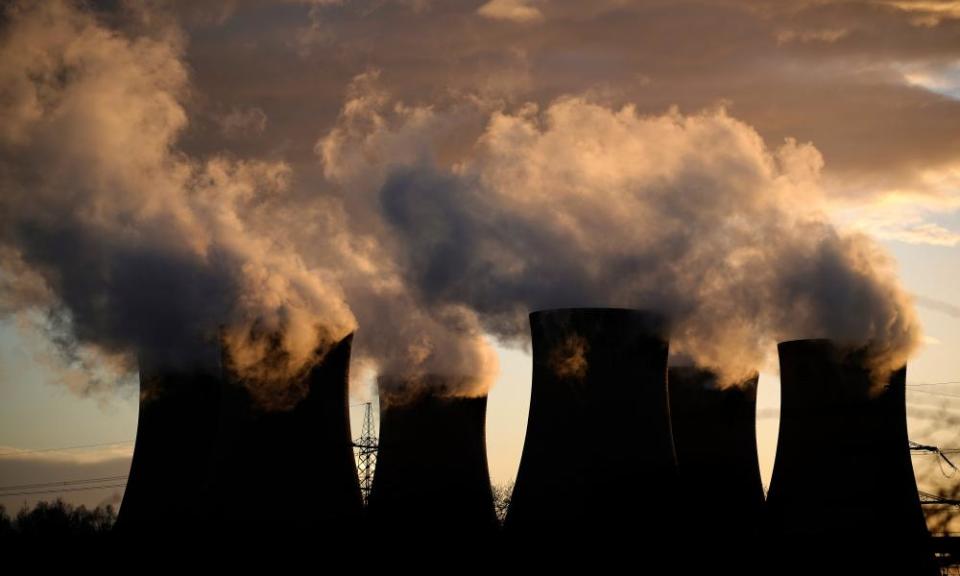National Grid stands down coal plants on standby in icy weather

Great Britain’s electricity system operator has stood down two coal-fired power stations that were put on emergency standby to keep the lights on amid a spell of cold weather.
Earlier on Monday, National Grid’s electricity system operator (ESO) said the two “winter contingency coal units” would be available if required on Monday as temperatures dip below zero and demand soars. It said the public should continue to use energy as normal.
But it is understood the units will not now be needed, with Great Britain’s energy needs met by other sources, including an anticipated pickup in wind power.
Related: UK cold weather: travel disruption as trains and flights cancelled by snow – live
The government this summer asked the owners of coal-fired power stations to slow closure plans as ministers looked to shore up energy supplies after the Russian invasion of Ukraine. Russia was previously a big supplier of natural gas to Europe, so the invasion roiled global energy markets and prompted a scramble for alternatives.
The coal plants in North Yorkshire that were preparing to operate on Monday are owned by the energy company Drax. They will only operate if instructed to do so by National Grid, and Drax will not be able to sell the electricity on the open market.
It comes after temperatures dropped as low as -8.6C on Sunday in Marham, Norfolk, according to the Met Office. It had issued yellow weather warnings for snow or ice for large parts of the country on Monday morning, with snowfall causing travel disruption across south-east England, including London and northern Scotland.
The drop in temperatures prompted UK power prices to hit a record high on Sunday.
Great Britain’s electricity generation system has rapidly moved away from coal in recent years: its first coal-free day was achieved in 2017, while in 2020 the island ran without coal-powered electricity for a month during a sunny May.
The use of zero-carbon renewables has increased rapidly to replace it, but the UK has also increased its reliance on natural gas, a fossil fuel. That reliance has proved problematic during 2022 after Russia invaded Ukraine.
Great Britain was heavily dependent on burning gas for electricity generation over the weekend, with low winds and cloudy skies. On Saturday, gas generated 62% of electricity in Great Britain, according to National Grid data. Nuclear power stations generated 14%, while wind and solar accounted for 8% and 1% respectively. Coal accounted for 4%. (Northern Ireland’s energy system operates separately.)
We've issued a notification to warm two winter contingency coal units. This measure should give the public confidence in Monday’s energy supply.
(1/3)— National Grid ESO (@NationalGridESO) December 12, 2022
National Grid ESO sought to emphasise that asking the coal-fired power stations to heat up did not mean it had any concern over blackouts on Monday.
“This measure should give the public confidence in Monday’s energy supply,” National Grid ESO said in a statement. “The ESO as a prudent system operator has these tools for additional contingency to operate the network as normal and the public should continue to use energy as normal.”
National Grid warned in October that severe conditions could trigger planned power cuts this winter. Fintan Slye, the executive director of the ESO, said that was still a possibility.
But he told BBC Radio 4’s Today programme: “We remain cautiously optimistic through the winter that we will be able to manage it. We have enough supplies secured through the rest of the day that we can manage that and ensure there’s no disruption to customers’ supplies.”

 Yahoo Finance
Yahoo Finance 